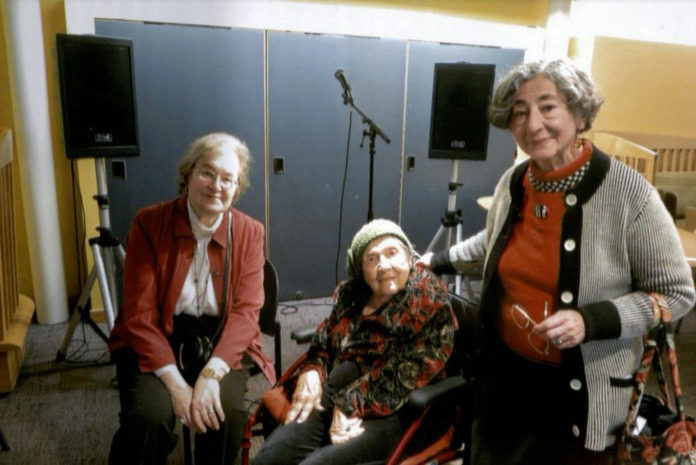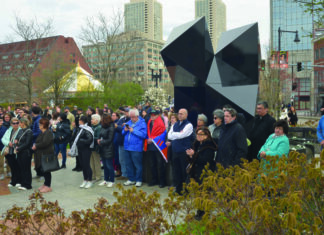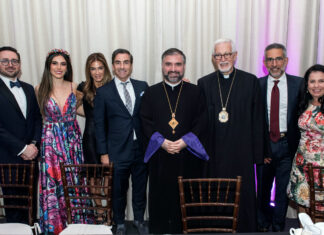By Sonia Ketchian
BELMONT, Mass. — On November 1, 2017, Dr. Bayara Aroutunova-Manusevitch turned 101 in her beautifully appointed home. Born in 1916 to a Russified Armenian family in Novyi Nakhichevan (New Nakhichevan, now in Rostov, where in 1778 Catherine II forcibly re-located over 200,000 Armenians from Crimea), she was named after her maternal grandmother Bayar.
“Bahar,” the little girl was told, in Armenian means “spring” that she must always youthfully emulate.
Bayara’s father, Haroutun Haroutunian, born in Karabakh, from age 6 was educated in the family of a wealthy Anglicized relative, Ekizler, who financed the bright lad’s entire education: Gymnasium, the exclusive Lazarev Institute in Moscow, and study of engineering in Paris. In Paris Haroutun met Kristina Iablokova (Khndzarian) of a cultured Russified Armenian family, whose wealthy great-grandfather had attained Russian nobility. Educated at the Rostov Gymnasium, Kristina moved to Moscow for the Higher Women’s Courses of Guerrier (3 years). Kristina was traveling in France with her fellow student friend Aleksandra (Asia) Ekster, later a world famous Russian artist, whose gifted paintings and decorated boxes little Bayara liked to “improve upon,” to Kristina’s chagrin. Married in 1913, Kristina and Haroutun’s happy family life was immersed in music, books, and art, and vacations in Crimea.
At Rostov University, Bayara graduated with high honors (1935-39) and in 1940 was admitted for a master’s degree in linguistics at the Rostov Pedagogical Institute, where she completed her examinations in two years, and wrote her dissertation, but World War II disrupted its defense. Well before the war, however, tragedy and suffering shook their idyllic family. In 1937 Haroutun Haroutunian, now a prominent engineer, was arrested as an “enemy of the people” by the NKVD, and sentenced to 10 years “without the right to correspond,” which meant immediate execution. His parting words to Bayara were, “Complete your education.” Six months later Kristina was arrested, and fortunately released in nine months; Bayara could not recognize the old emaciated woman who came to the door as Kristina. In the meantime, in this despondent situation, Bayara appreciated the moral strength and love of her brilliant sympathetic professor Georgii Gaevsky, but their marriage was short-lived when in February 1941 he was arrested and executed.
During World War II, Bayara and Kristina ended up in Germany as “house servants” to one of Kristina’s long-established brothers. Their living nightmares would gradually come to an end. In December 1952, with US help, Bayara arrived in New York, where she received a stipend to continue her education in the graduate program of her choice. In 1953, her choice fell on Harvard’s Department of Slavic Languages and Literatures with world-renowned luminaries Roman Jakobson and Mikhail Karpovich. Kristina and Bayara were re-united in 1954, and permanently in 1956 thanks to the efforts of then Sen. John F. Kennedy. Mother and daughter rejoiced as Bayara defended her PhD dissertation titled “Linguistic and Stylistic Problems of Word Order in Modern Russian” in 1958 with Jakobson as her main advisor. The department invited her to remain, and therefore Bayara Aroutunova became a tenured senior lecturer for 30 productive years teaching impeccable Russian Stylistics, Advanced Russian and Literature in Russian until her retirement in 1987. A great asset to the department with her superb vibrant intelligence, stupendous Russian, articulated in her beautiful voice and intonation, fine training, dedicated teaching, vivacious genial personality and superior elegance, Bayara prepared many of the lucky best American specialists in Russian language and literature.










